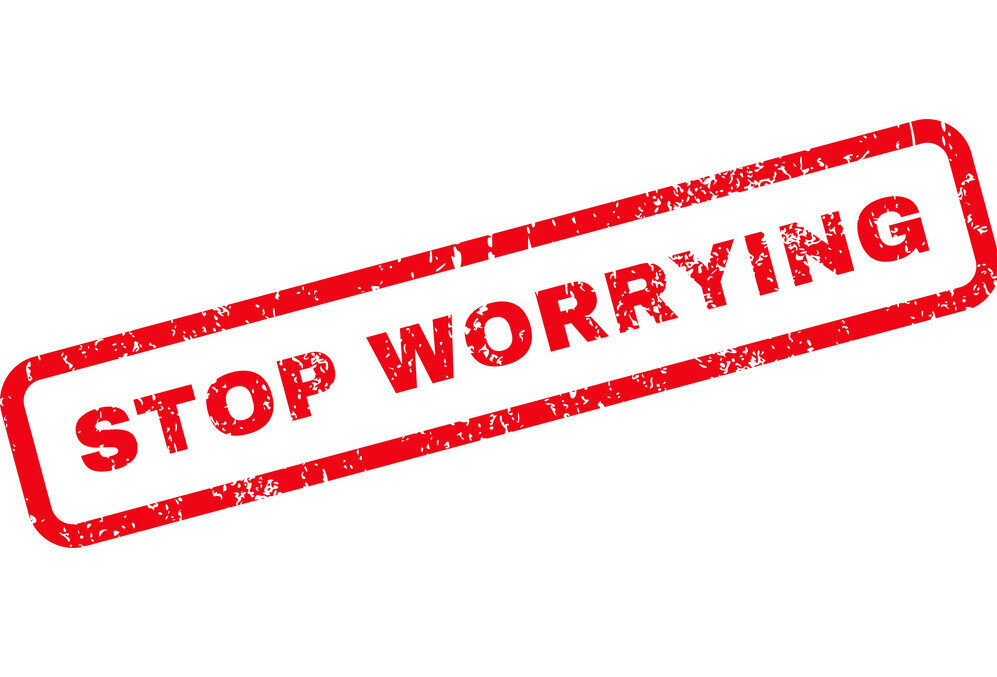
Start by answering these questions on a scale from 1 to 5, with 5 being “strongly agree” and 1 being “strongly disagree. The highest score possible is 20 (take full test here).
- My worries overwhelm me.
- I know I should not worry about things, but I just cannot help it.
- When I am under pressure I worry a lot.
- I notice that I have been worrying about things.
Higher scores indicate you are a worrier. Most people have times they worry; however, when worry occurs more often than not, it is a problem.
For all the worriers, has spending even one second worrying changed anything? My guess (well not a guess because I used to be a terrible worrier) is that the time spent worrying was time wasted. Worrying keeps us from making the best of each day. We are less productive and less positive when we worry so much. Most worry stems from fearing the unknown and the unknown can be quite scary. However, when reflecting back on the many days I spent worrying, I can say that not one time did the situation end up as my worst case scenario. For situations where worry was justified, a simple problem solving technique would have saved me a lot of squandered time.
I read Your Erroneous Zone by Wayne Dyer years ago. One of my favorite components of the book is that it explains the payoffs we get from engaging in certain unhealthy behaviors. So, I learned that my payoff for worrying was that I showed others how much I care about them. I also learned that when worrying, I did not have to feel other emotions or deal with other areas of my life. So, ask yourself, what are you getting out of worrying?
When worry is related to not knowing the best decision to make or how to approach a problem, use problem-solving steps to work through it, make a decision, and let it go. The first step is to identify the problem. Next, brainstorm potential solutions. Evaluate the solutions using a pros and cons list and pick the best of the solutions. Now test the solution. Finally, make adjustments to the solution; pick another solution to test; or you have resolved your problem.
When worry is related to events that are not likely to happen and worry is a common occurrence, cognitive behavioral therapy may be helpful. Start with identifying what the worry is about or what the feared outcome is. Use Socratic questions (there is a past blog on this) to support your belief that the situation/event will happen. If there is no evidence to support your belief, provide new information to your brain. Another technique is to embrace the unknown and learn ways to accept that you have no control over the future. Some people have done well with setting aside a period of time each day to worry, but that is the ONLY time during the day you can worry. This should not be more than 30 minutes.
Time is precious. Worry steals that time. Worry really has no great benefit to us. It just keeps us from the present moment. Commit today to worry less. I do believe you will feel much better!
If you want to test your memory, try to recall what you were worrying about one year ago today. – E. Joseph Cossman

